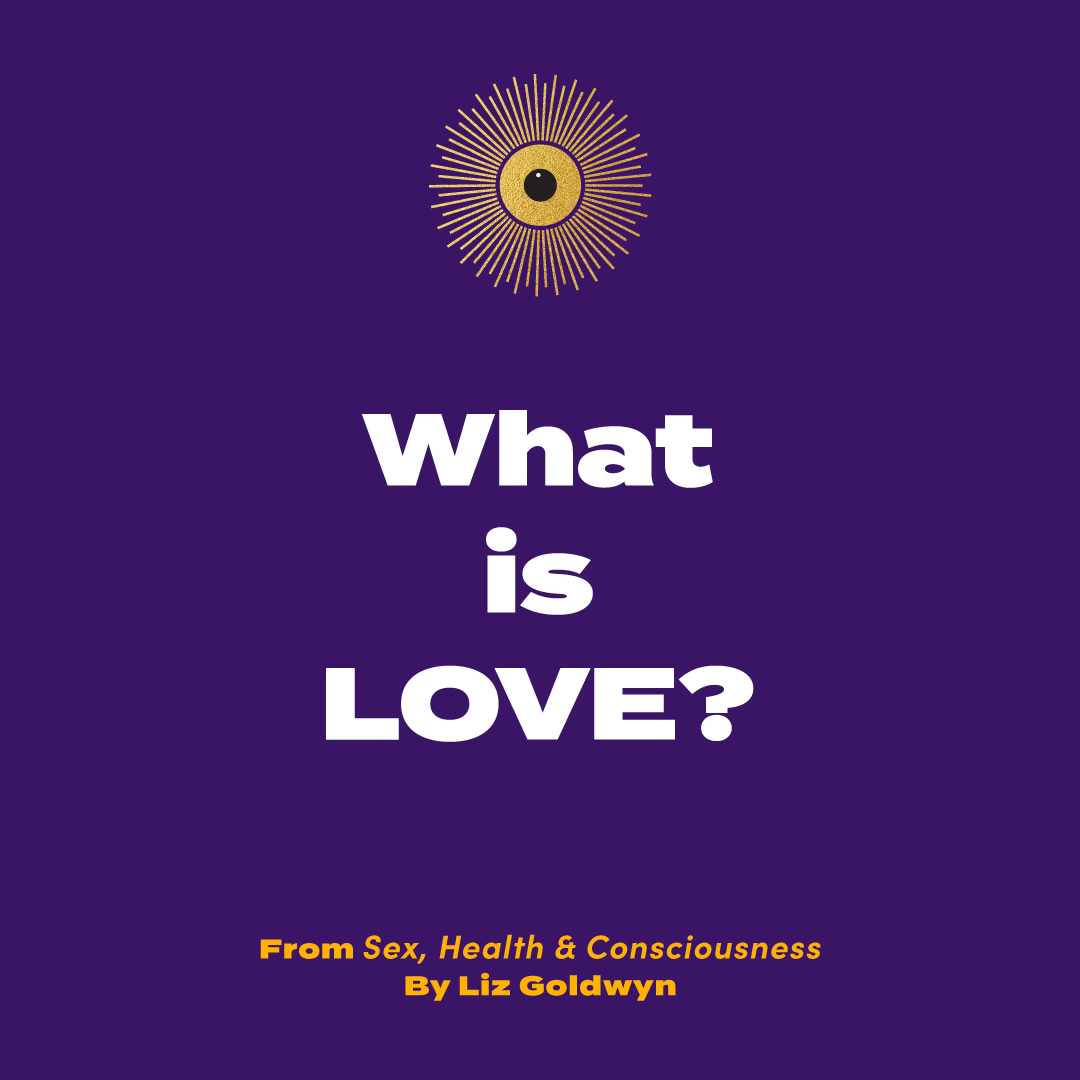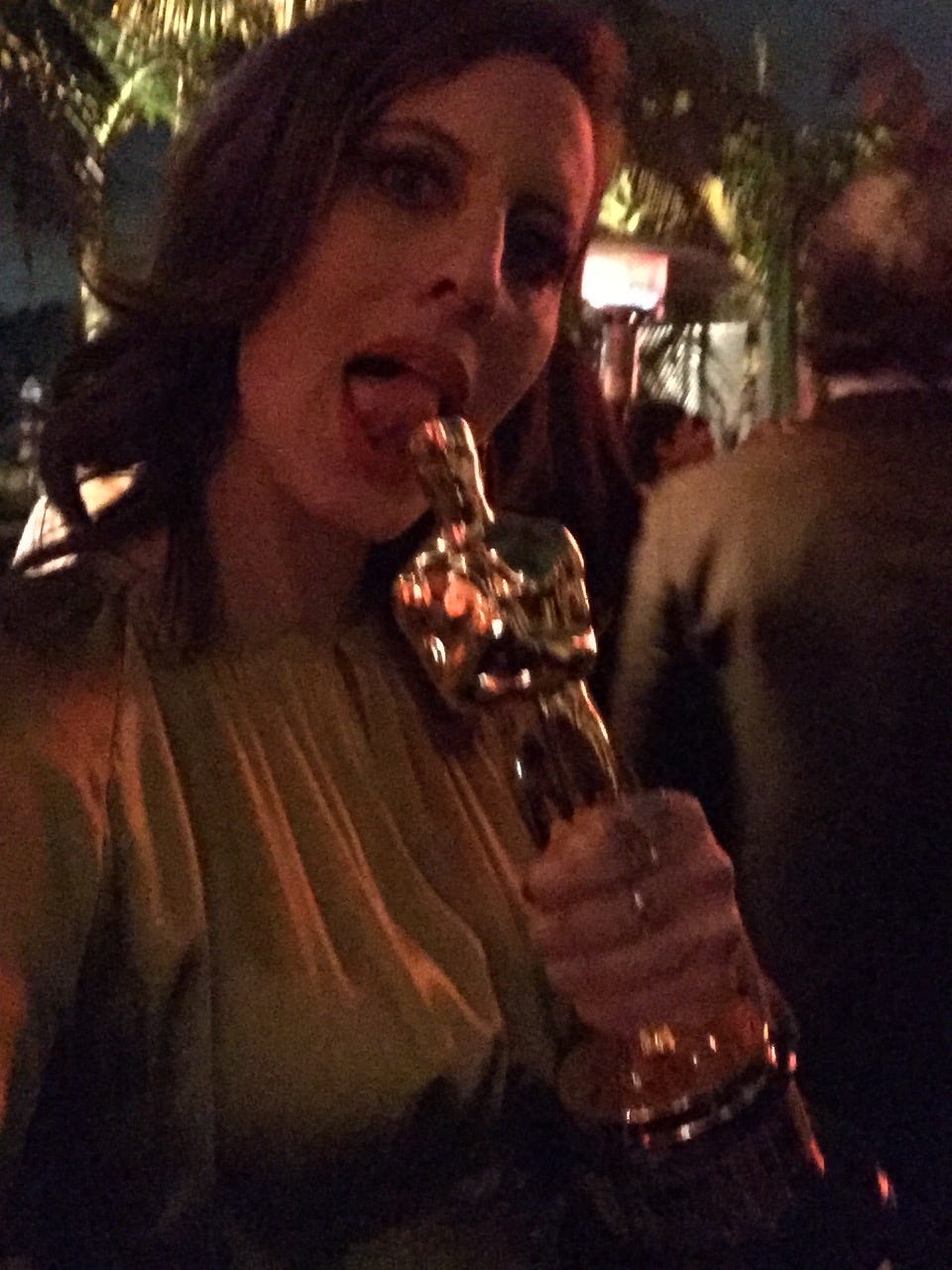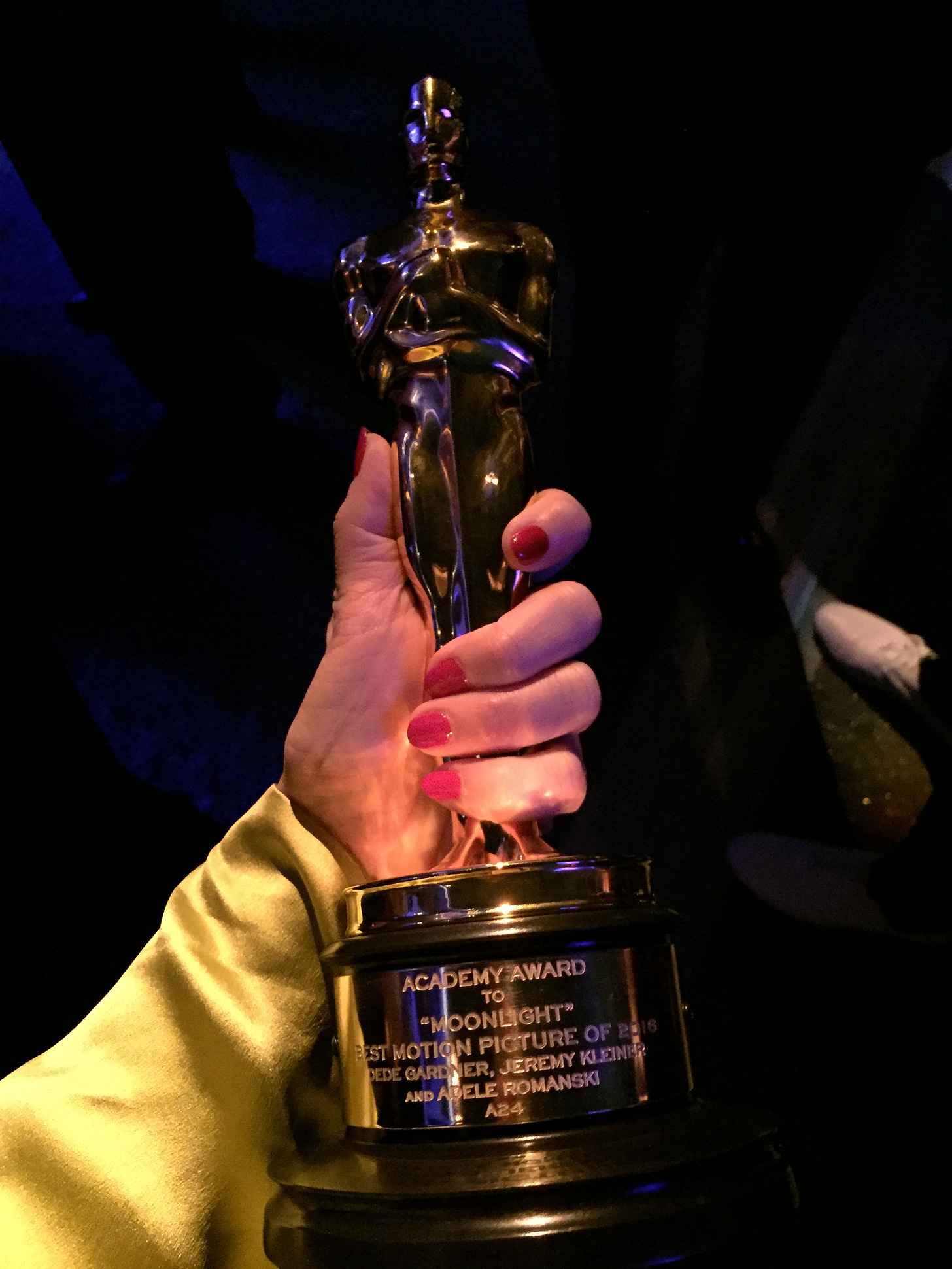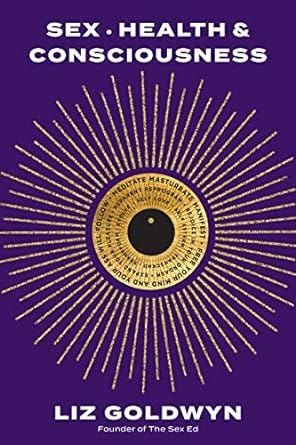One of my mentors, the late Dr. Walter Brackelmanns, (President and co-founder of AACAST—American Association of Couples and Sex Therapists— and Director of the Sex Therapy Training Program at UCLA for 50 years) used to tell me that,“being in love is a transient psychotic state you have to get over in order to have a real love relationship with another person.”
Below, an excerpt of “What is Love?” from my book Sex, Health & Consciousness, in celebration of LOVE.
Walter had many great lines‚ often old fashioned —“Women are difficult to understand. [Hetero] men are not. In order to satisfy men there’s only the three F’s: feed him, flatter him and fuck him. Guess where women break down the most? Flattery.” — but he was spot on about love making us feel deranged, as our body and brains react to the chemical rush of being attracted to someone. Research on the first stages of love and cocaine addiction both show increased activity in the brain, nervous system and intensified arousal as dopamine and norepinephrine surge. They both link pleasure to desire (for coke or sex), sleeplessness, euphoria and loss of appetite. Cocaine addiction and “falling in love” can induce obsessive behavior (i.e new lovers tend to think about each other 95% of the time as would someone jonesing for their next fix.) Love can feel like an addiction, hence, the expression, “love is a drug.” Withdrawal symptoms in our brains from cocaine and opioids mirror heartbreak from romantic love.
With Walter, aka Dr. B at UCLA in 2018.
When I think back to my first love, at thirteen years old, I associate the feeling with losing myself — failing all my classes that semester, talking on phone with him every night until the sun came up; sleepless, disoriented, crushing beyond. I changed my schedule, priorities and desires to suit the romance. I was utterly intoxicated—bewildered by his eyes and locks of hair falling over thick brows— the first super-dreamy, Peter Pan bad boy that I lost my heart to (and unfortunately, not the last.)
I thought I would die without him. It may have been my teen hormones going wild but I was madly, crazily in love. I discovered perception altering drugs (LSD and Cannabis) around the same time as I was exploring this new feeling. My infatuation and the highs were blissful escapism—what felt like transcending, surrendering to alternate universes. Reflecting on it now, I see how linked the feeling between love and drugs was for me —being engulfed in a temporary state followed by a crash. Now love feels more like sinking into a warm bath in a lover's embrace than completely forgetting myself.
The state of “in love” or “limerence” lasts roughly 2-4 years—as oxytocin floods your brain, it is a feeling like being high and marked by infatuation and anxiety. Over time a romantic relationship changes, lust decreases and hopefully, bonding and in Walter’s terms, a “dialogue of intimacy” takes place—communicating feelings and insecurities. Romantic love sustains a relationship over time. As does regular sex, an important part of intimacy. All of which takes enormous determination and consideration on both parties. This is not the Disney version of love where Snow White (insert any princess myth here) and Prince Charming ride off into the sunset and live happily ever after. Real “love” begins when they shack up in the castle and have to deal with their respective idiosyncrasies, personal evolution and extended families. As Walter put it, “If you want to be “in love” for the rest of your life you have to keep rotating partners every 1-4 years.”
For something so central (love) to human existence, it seems like none of us have much clarity around what it is. Most self help books and Instagram therapists devoted to love focus on finding someone to partner and have sex with and potentially procreate. They often talk about love languages or how to care for and receive affection but rarely do they define love. It’s more a “game of love” (how to possess, win, achieve) mentality than how to pursue a deeper understanding of love that links mind, body and soul. So many people (I hear this particularly from straight men) would rather run from intimacy and love than face the possibility of hurt, rejection and their deeper selves.
Walter (and most of his peers ) estimate that we unconsciously choose our partners in order to “recreate a relationship which is similar to one we had with the parent or parents of conflict, for purposes of fixing and repairing our childhood. Good fucking luck. That’s what we do. We do it over and over.” This definitely used to track in my case. However, we don’t have to repeat the patterns if we recognize and accept these parts of ourselves. But it ain’t easy.
I grew up in Hollywood, literally the epicenter of media mythology, which totally distorted my view of love, especially self love. I come from a show business family— my paternal grandfather produced the first feature film in Hollywood back in 1913 and went on to found multiple movie studios; my paternal grandmother was an actress and sometime Vogue model—and most of my immediate and extended family, in one capacity or another, are in the biz. My childhood was very privileged and definitely not “normal.” The majority of the people I grew up with and/ or their relatives were actors, directors, writers, producers, musicians or associated with the industry. It was a highly concentrated petri dish of “special” people. I use “special” here not because I believe some people are more significant than others (we are all unique) but because the outside world tends to place a high value on those who are in the public eye, which confers a very weird sense of “specialness” upon certain people. It all creates a warped sense of reality.
Due to this childhood perspective, I had a bird’s eye view of where the greater culture is now, with love wrapped up in narcissism and celebrity. We reward money, fame and power with love. Put simply, we are all STARF⭐️CKERS to some degree, whether we want to admit it openly or not. My dad used to say “You’re only as good as your last picture” and dinner table talk involved which movie or person had the highest box office numbers that week, ie. how “good” you are is measured by outward success and at such a high bar, to boot. The unconscious lesson I learned growing up was that validation and self worth came through placing ourselves/ others on a pedestal. Everything revolved around being in the center of the spotlight (or worshiping those who were.) If we revere seeing ourselves reflected through others admiring gazes— we essentially allow others to dictate whether or not we are lovable.
From a very early age I witnessed adults around me get caught in an intricate web of toxicity around love. To the outside world, Oscar season and the Academy Awards is one of the most glamorous things about Hollywood. You know what I would see/ feel during that time of year? The Hollywood hierarchy on display in full force— you can literally smell the dysfunction, insecurity and hustle. It is a super heightened experience of people looking around the room and not in your eye when they are talking to you— to see who else is there, who is more important, who may help further their career. I have had people I know very well completely ignore me until they see me speaking with someone famous and then make a beeline in my direction. Or the opposite, clearly killing time with me while glancing over my shoulder, abruptly breaking off in the middle of a sentence and leaving when someone more fabulous appears. It felt fucking shitty. My self esteem and worthiness would plummet and I would immediately start comparing and despairing all the ways I didn’t measure up, wasn’t good enough. Even the most well-adjusted person in the world would have trouble maintaining their center amongst this microscopic lens of superstardom.
Being surrounded by all this “me, me, me” and “love/ fame fixes everything” thinking impacted my sense of self love. Unfortunately, this has become the norm to emulate. Today our worth is measured by likes and comments, engagement across platforms. It’s fucking exhausting. Sometimes I drive around Los Angeles looking at billboards advertising this or that product with perfectly preserved- at-21 skin and super tight bodies and for a moment I lose faith in humanity. Fame may be the collective goal, but beyond financial gain is the very real desire for love. Public acclaim and acceptance stands more and more to fill the void of a lack of self love. Where does this leave us? How does it help us evolve our love and acceptance of ourselves and others?
So, back to the point—what is love, anyways? bell hooks wrote a whole book on it— All About Love— which I cannot recommend enough. I re-read it every so often to remind myself of how many other people out there are striving to redefine how we approach love.
Loving is challenging, even if you are with or meet a “soulmate.”
Are soul mates even real? Is it like searching for a unicorn? I once asked Walter if he believed in soul mates. He told me he did, though he stressed how very rare it is to find someone with whom your psychopathology fits perfectly. Among his patients, he counted one case. Keep in mind he had been teaching for 50 years with 97,000 hours of clinical practice under his belt. A couple came in to see him because the husband was “fucking sex workers...It got out of hand, so he told her what he was doing. And she got really upset.” Walter excused the wife from therapy—the husband had individual issues unrelated to the marriage that needed to be addressed. In Walter’s view, you can have problems in your partnership and still be soul mates….
IF YOU WANT TO READ THE WHOLE CHAPTER, BUY THE BOOK, BABE. I READ THE AUDIO VERSION, TOO. XOXO
Sex, Health, and Consciousness:
How to Reclaim Your Pleasure Potential by Liz Goldwyn
Explore how the intersection of sex, health, and consciousness unlocks a new paradigm of pleasure.
Our sexuality is an integral part of who we are, yet our understanding of sex has been warped by everything from age-old taboos and religious dogma to a popular culture that views sexuality as transactional. With Sex, Health, and Consciousness, Liz Goldwyn, founder of the thriving online platform and podcast The Sex Ed, has created an inclusive, holistic, and much-needed guide to sexual well-being―and the pleasure that’s possible when we embrace our sexuality as a natural part of a healthy human experience.
In this comprehensive resource, Goldwyn shows readers how to expand their pleasure potential through an in-depth exploration of how our sexuality, physical and emotional health, and consciousness are intimately woven together. Gender fluid and non-age specific, Sex, Health, and Consciousness goes well beyond Sex 101, covering spiritual and energetic influences on sexuality―such as the chakra system, yin and yang energies, mindfulness practice, and more―along with social and biological factors―including research on sexual health and first-person accounts of sexual awakening.
“In order to have the best relationship with your sexuality, and therefore the best sex possible, you need to make sure your mind, body, and consciousness are in alignment,” writes Goldwyn. “Because experiencing greater joy, connection, and pleasure is your birthright.”











Discovered your newsletter through the Every Outfit pod. Really excited to dive in, loved hearing your POV on fashion and style (and after reading your post - what exactly is love anyway?!)
- I’m a huge fan of the bell hooks book, I take it with me on vacation sometimes. What is love within the context of romance, work, family, etc?
- whew, your points about proximity to power/fame/whoever is highest on the totem pole at any specific point in time cut deep. I’ve felt that in a different way in New York with the game of “what do you do?”. And the feeling of people evaluating you based on how you can increase their cache, so to speak.
Thank you for this one! Excited to continue following your writing.
This is my favorite piece yet. And I want to give you a big hug for each time some idiot lacked eye contact in desperation to find someone bigger in the room, only to further a career. I could see how that would make one feel shitty, but that behavior is probably more to do with their own shit short comings.